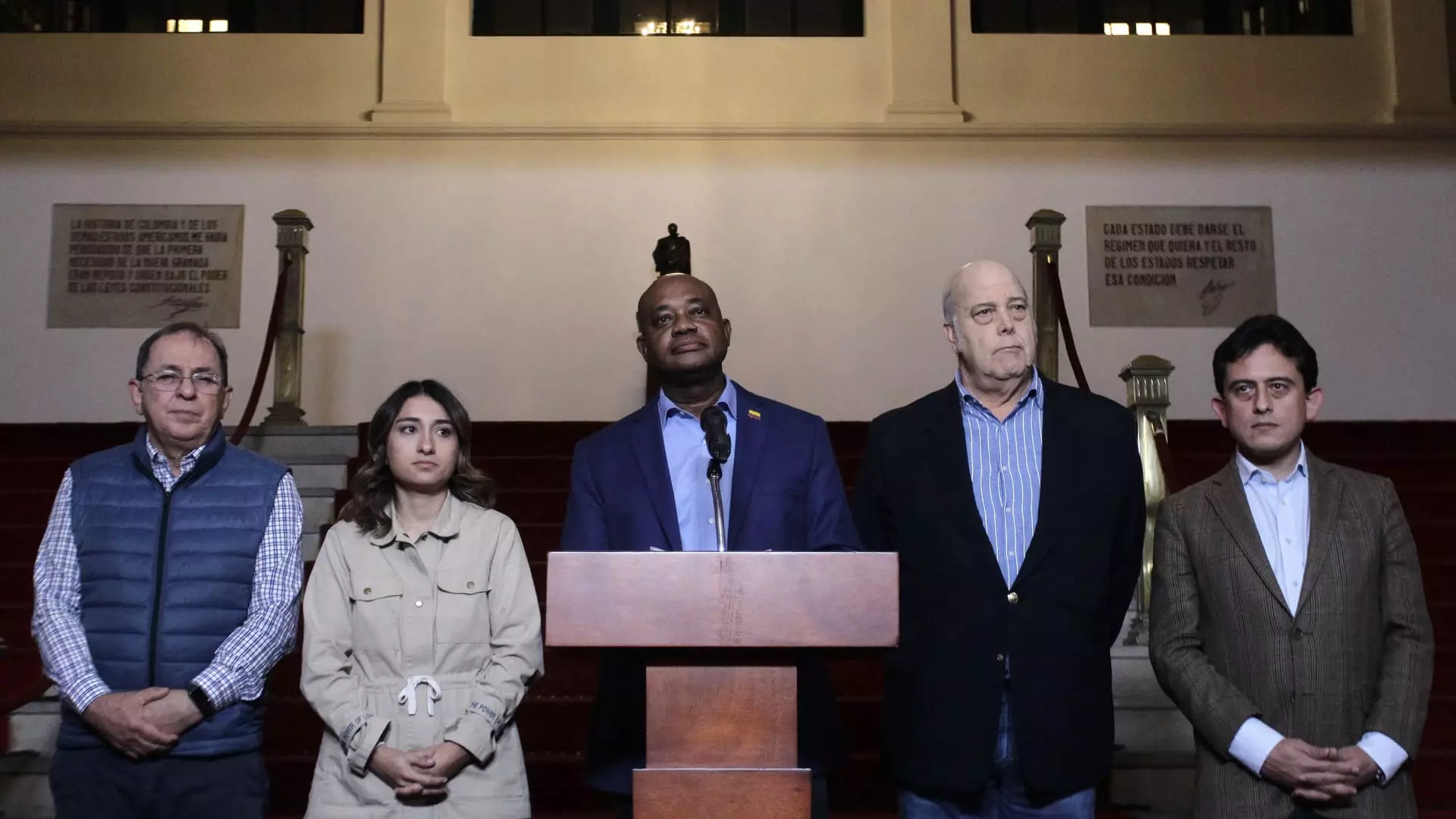In recent weeks, tensions between the United States and Colombia escalated as a potential trade war loomed large on the horizon. At the heart of the discord was the United States’ aggressive immigration policy under the Trump administration, which sought to deport undocumented migrants back to their home countries, including Colombia. The crux of the dispute lay in Colombia’s initial refusal to accept military flights carrying deported migrants. This refusal provoked threats from President Trump of imposing tariffs and sanctions, a flashpoint that raised critical questions about international relations, adherence to human rights, and the future of trade between these nations.
The political landscape shifted dramatically when, following intense negotiations, Colombia ultimately capitulated to Trump’s demands. This pivotal moment not only avoided immediate punitive measures against Colombia but also revealed the complexities surrounding diplomacy and immigration policy in an increasingly polarized world. The swift turnaround by Colombia, represented by Foreign Minister Luis Gilberto Murillo, highlighted that international negotiations can often resemble a high-stakes chess game, where both sides must strategize against each other’s moves while considering the well-being of their respective citizens.
The declaration by the Colombian government to accept military aircraft for the transportation of deported migrants represented a significant concession. It underscored Colombia’s recognition of the U.S. as its largest trading partner, facilitating a complex interdependence that runs deeper than ideological differences. The compromise offered by Colombia can be seen as an effort to stave off disastrous economic repercussions that would have come with the imposition of Trump’s proposed tariffs, which included staggering 25% duties on Colombian goods—a drastic measure that could cripple trade relations.
The stakes were high, as Colombia is the third largest U.S. trading partner in Latin America. The economic implications of any trade war would have resonated not just in Colombia, but throughout the region, creating a ripple effect that could destabilize financial markets. The preventive agreement also showcased how intertwined the fates of countries become when economic interests converge with pressing social issues like immigration.
The Trump administration’s stance on immigration has been a defining feature of its policy agenda. The framing of illegal immigration as a “national emergency” allowed for sweeping executive actions that have redefined U.S. border policy. This crackdown has included restrictions on asylum, increased military involvement in border security, and even re-evaluating the 14th Amendment’s implications for birthright citizenship, which together suggest a stark shift towards nationalism.
However, the ethical ramifications of such policies cannot be understated. Colombian President Gustavo Petro unequivocally condemned the idea of militarized deportation, equating it to inhumane treatment. His rhetoric reflected a growing concern that the migration debate should not strip people of their dignity in the face of international law and human rights commitments. Despite his initial opposition, Petro showed support for the dignified return of deported migrants—a perspective that complicates the narrative surrounding U.S. immigration policies and their impact on relationships with countries like Colombia.
Ultimately, the recent diplomatic negotiations between the U.S. and Colombia highlighted the fragility of international relations in an era marked by aggressive political posturing. The agreement to facilitate military aircraft for deportation was a temporary reprieve, but it simultaneously revealed underlying tensions that could easily resurface.
As both countries move forward, the essential question remains: will Colombia be able to maintain its autonomy and dignity while navigating its dependence on the U.S.? Or will the pressures of economic ties dictate its political choices in the future? The situation underscores the delicate balance that nations must strike between self-determination and the realities imposed by their global interplay, especially in an age characterized by rapid political shifts and tightening immigration policies. The resolution of this dispute does not mark the end of the dialogue but rather the beginning of further scrutiny into how nations address shared challenges while upholding their moral responsibilities.


Leave a Reply